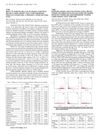signaling protein that, when suppressed, may grow hair by reducing inflammation and stem cell loss
natural substance from Neem tree with medicinal and pesticidal properties
JAK inhibitor that reduces inflammation and immune attacks on hair follicles, leading to potential hair regrowth, especially in alopecia areata cases
glycoprotein that inhibits TGF-β and promotes hair growth by antagonizing activin


